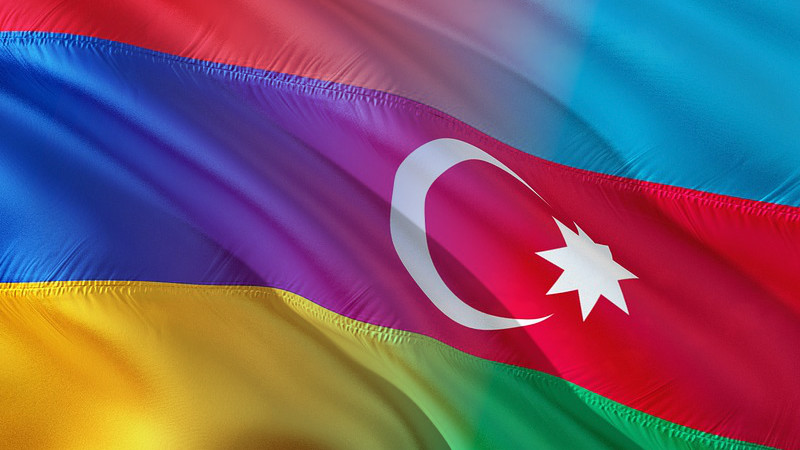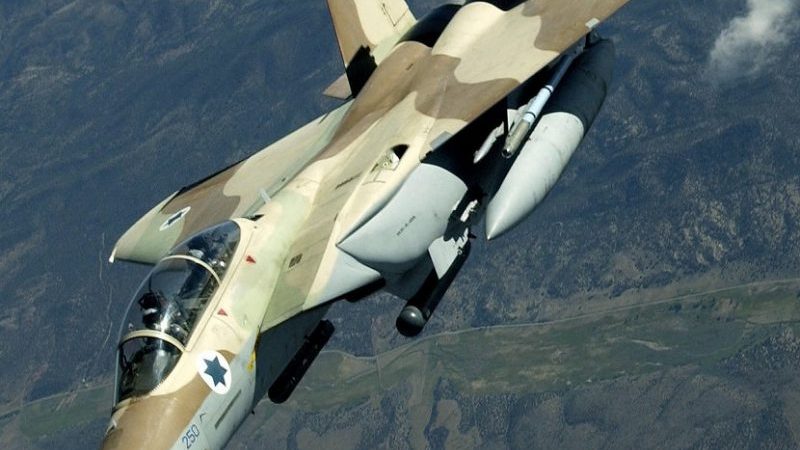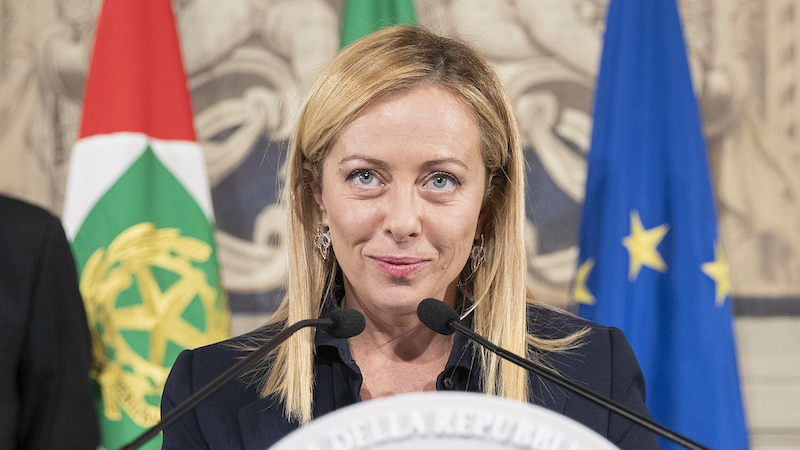Day: June 25, 2024

The aftermath of the Second Karabakh War in 2020, coupled with subsequent military operations in the former separatist region of Karabakh, underscores the critical need for a peace agreement between Baku and Yerevan. Unfortunately, recent developments indicate that Armenia-Azerbaijan relations have reached a stalemate, with both sides adopting increasingly entrenched positions.
Armenian indolence amidst Azerbaijani expectations
Within Armenia, there are observable signs of reluctance to expedite peace negotiations. Both government and opposition factions seem to believe that Azerbaijan will refrain from taking decisive action due to upcoming international events, such as COP29, scheduled for November 2024 in Baku. This belief is rooted in the expectation that Azerbaijan would avoid international condemnation by maintaining a facade of stability during high-profile global events.
However, Azerbaijan’s leadership has repeatedly warned that a lack of peace in the South Caucasus could lead to renewed conflict. President Ilham Aliyev has emphasized that the results of the 2020 war must be respected. This includes the delimitation and demarcation of borders and the reopening of regional communications, which are essential for the development and stability of the entire region. Azerbaijan insists that any delay in these processes is unacceptable and a potential trigger for further hostilities.
Azerbaijan’s reconstruction and military readiness
In the wake of the conflict, Azerbaijan is actively engaged in reconstruction efforts, rebuilding towns and infrastructure from scratch to ensure the safety and prosperity of its citizens. This includes the implementation of advanced technologies and the development of so-called smart villages. Alongside these reconstruction efforts, Azerbaijan is also upgrading its military capabilities to prevent any potential threats to its sovereignty. The message from Baku is clear: any overt or covert threat from Armenia will be met with immediate and decisive action, driven by the principle that an effective defense is predicated on a robust and proactive offense.
International & domestic peace enforcement
Armenia’s recent procurement of arms from countries such as France, India, Greece, and others indicates a departure from peace rhetoric. Azerbaijan views these actions, alongside Armenia’s attempts to avoid constitutional changes, as moves to delay the signing of a peace agreement. France, in particular, is seen as a significant adversary, allegedly pushing Armenia towards further conflict. Meanwhile, segments of the Armenian diaspora are believed to be financially supporting such initiatives, despite the potential for significant loss of life.
Azerbaijan remains committed to achieving peace, having paid a heavy price in human lives. The Azerbaijani government is determined to prevent another war on its territory and will respond to any attacks on its smart villages or infrastructure with full force. Azerbaijan views Armenia’s strategic importance as minimal, often referring to it as the “country of stones” due to its lack of natural resources and logistical significance.
French ambitions & Armenian provocations
France is perceived as attempting to establish dominance in the region using Armenia as a foothold. Historical lessons seem to be ignored by the current French leadership, which appears to be driven by ambitions akin to those of the Napoleonic era. Armenia’s recent ceasefire violations and subsequent proposals for a bilateral mechanism to investigate these incidents are seen as attempts to create international oversight and potentially freeze the current borders, to Azerbaijan’s disadvantage.
The proposed mechanism by Armenia is reminiscent of past initiatives aimed at maintaining the status quo. For instance, in 2016, Armenia proposed a similar mechanism when Serzh Sargsyan was in power, aimed at controlling the ceasefire line in Karabakh. This proposal, known as the “Royce-Engel proposal,” was backed and funded by members of the American Armenian National Committee (ANCA) and sought to involve international oversight to prevent Azerbaijan from reclaiming its occupied territories.
Geopolitical maneuvering and international influence
There is speculation that the United States might support Armenia’s plan to strengthen its regional influence. Armenia’s continued border provocations appear to be aimed at keeping this proposal on the international agenda. The recent violation of the ceasefire and the subsequent proposal by Armenian Prime Minister Nikol Pashinyan for a bilateral mechanism seems to be strategic moves to garner international attention and support.
The West has historically benefited from maintaining a conflict phase in the region. However, Azerbaijan’s recent actions have created new and unexpected realities in the South Caucasus. This has led to increased pressure from both the US and France on Baku. While the US aims for a reliable security and partnership model with Azerbaijan, France seeks to reassert its influence, often clashing with both Russian and American interests.
Azerbaijan’s strategic diplomacy
Azerbaijan is maneuvering between US and Russian interests, attempting to expand its diplomatic options against French ambitions. The country remains open to genuine peace initiatives but rejects efforts to revive the OSCE Minsk Group’s co-chairmanship model, which it sees as ineffective. The Azerbaijani government is focused on ensuring that any peace process is fair and unbiased, without the influence of countries that have shown partiality in the past.
The geopolitical landscape in the South Caucasus is further complicated by the involvement of Russia. Unlike its aggressive stance during the Karabakh conflict, Moscow is now seeking ways to exert control over Armenia without directly antagonizing Azerbaijan. This shift in Russian strategy has created an opening for Azerbaijan to engage more actively with both Western and Russian actors, leveraging its position to secure a favorable outcome.
Conclusion
The region faces a critical juncture where Armenia must choose between war and peace. Azerbaijan has chosen peace but is prepared for conflict if necessary. The international community’s involvement, particularly that of France, the US, and Russia, will significantly influence the future of Armenia-Azerbaijan relations. For true peace to be achieved, all parties must engage in sincere and unbiased negotiations, avoiding any form of biased mediation.
In summary, Azerbaijan remains steadfast in its commitment to peace but is ready to defend its sovereignty and territorial integrity against any threat. The actions of Armenia, influenced by internal politics and external alliances, will determine the next phase of this long-standing conflict. The international community must act responsibly, ensuring that their involvement fosters genuine peace rather than exacerbating existing tensions. Only through honest and balanced diplomacy can lasting peace be achieved in the South Caucasus.

Local officials and family members said an Israeli airstrike Tuesday in northern Gaza killed 10 relatives of Hamas political chief Ismail Haniyeh, who is based in Qatar.;
The strike hit a house in the Shati refugee camp west of Gaza City.;
Israeli strikes earlier in the war killed three of Haniyeh’s sons.;
Israel’s military said its forces carried out airstrikes targeting buildings in Shati and another area in northern Gaza that it said were being used by Hamas militants who were involved in the October 7 attack on Israel.;
The latest fighting came as Israel’s Supreme Court ruled that the military must draft ultra-Orthodox Jewish seminary students.;
The unanimous decision Tuesday could put additional pressure on Prime Minister Benjamin Netanyahu’s government, which relies on two ultra-Orthodox parties in its coalition.
The war in Gaza and Israel’s clashes with Hezbollah militants along the border with Lebanon have made the issue even more prominent as people question the long-standing exemptions that allow the seminary students to avoid the military service required of most Israeli men and women.;
In Washington, U.S. Defense Secretary Lloyd Austin warned his Israeli counterpart, Yoav Gallant, that a heightened conflict between Israel and Hezbollah could touch off a regional war and urged a diplomatic solution.;
Even as the Israel-Hamas conflict has extended into a ninth month of fighting, Israeli forces have exchanged fire with Lebanon’s Iran-backed Hezbollah on a near-daily basis.;
“Another war between Israel and Hezbollah could easily become a regional war, with terrible consequences for the Middle East,” Austin said. “Diplomacy is by far the best way to prevent more escalation.”;
Gallant, speaking before talks with Austin, said, “We are working closely together to achieve an agreement, but we must also discuss readiness on every possible scenario.” Israel’s army said last week that it has plans “approved and validated” for fighting Hezbollah.;
Secretary of State Antony Blinken also urged Israel to avoid escalation in Lebanon when he met with Gallant on Monday. Israel and Hezbollah last fought a full-scale war in 2006 when a cross-border Hezbollah attack sparked 34 days of fighting that took a heavy toll on Lebanon, especially the country’s southern region.;
The Israeli defense leader also met with CIA chief Bill Burns, the key U.S. official in negotiations to free hostages held by Hamas, which launched the unprecedented attack on Israel in October that triggered Israel’s counteroffensive in Gaza.;
Netanyahu has said Israeli forces are winding up the most intense part of the Gaza war and will redeploy to the northern border, although he has cast the move as defensive.;
Blinken also pressed Gallant to take more steps to protect aid workers in Gaza.;
Earlier Monday, European Union foreign policy chief Josep Borrell told reporters in Luxembourg that the risk of the Gaza war spilling over into Lebanon is growing bigger every day.;
“I think that, unhappily, we are on the eve of the war expanding,” Borrell said.;
He also said a cease-fire in Gaza is desperately needed to facilitate the flow of humanitarian aid, saying, “Delivery of humanitarian assistance inside Gaza has become impossible.”;
A temporary pier that was built for delivering aid into Gaza via a sea route paused deliveries Monday due to “scheduled maintenance,” Pentagon press secretary Major General Pat Ryder told reporters.;
Sunday marked the U.S.-built pier’s largest delivery day to date, moving 720 metric tons of aid to the Gaza beach that day. Since operations began on May 17, the U.S. military has delivered more than 6,200 metric tons of aid via the sea route to the Gazan coast destined for Palestinians, according to Ryder.;
However, aid organizations say corridors intended to funnel that aid from the Gazan shore to Palestinians in need are unsafe and unusable.;
Ryder also told reporters Monday that the;USS Dwight D. Eisenhower;carrier strike group will “remain briefly” in the Mediterranean Sea before returning home. The aircraft carrier left the U.S. Central Command region after being deployed for more than seven months.;
The;USS Theodore Roosevelt;will leave the Pacific region in the coming days to deploy to the Middle East “to promote regional stability, deter aggression and protect the free flow of commerce in the region,” he said.;
The war was triggered by the Hamas attack on Israel that killed 1,200 people, according to Israeli officials, and led to the capture of about 250 hostages. Israel’s counteroffensive in Gaza has killed more than 37,600 Palestinians, mostly civilians, but including thousands of combatants, according to the territory’s health ministry.

After securing the most votes in the European Parliament election, Italian Prime Minister Giorgia Meloni achieved another victory in Parliament. On June 19, members of Parliament voted in favor of a bill on differentiated autonomy. The new legislation will decentralize decision-making and financing on education, health, public services, and culture, among other areas.
The parliamentary discussion preceding the vote was exceptionally heated, culminating in members of Parliament from far-right Lega and Brothers of Italy parties physically attacking a member of the Five Star Movement.
Critics have dubbed the new law the “Split-Italy” law, predicting it will undermine the constitutional principle of;solidarity. On the other hand, right-wing parties, especially Matteo Salvini’s Lega, have celebrated the vote’s outcome. Salvini and his allies have long advocated for more regional autonomy by pitting the interests of the northern regions against those of the southern ones, drawing upon stereotypes of the South as a backward, non-contributing part of the country.
The new law technically still foresees minimum standards for public services in all regions. However, the framework means wealthier regions can invest more in these services. For example, Veneto might increase health spending within its borders, while regions like Calabria, lacking financial resources, will be stuck at the state’s minimum level. This disparity could lead to longer waiting lists for patients in Calabria and harsher working conditions for health staff, potentially increasing internal migration to wealthier regions and perpetuating a vicious cycle.
“Our governments are working together to provide a stable world for future generations,” said Charles, flanked by Queen Camilla on one side and Naruhito on the other.
“Supporting all these shared endeavors are the enduring ties between our people that transcend geography — and that does not just mean how much we enjoy tea and talking about the weather.”
The emperor’s trip, postponed from 2020 due to the COVID-19 pandemic, seeks to deepen the military, cultural and scientific links between the two countries.
Naruhito paid tribute to the late Queen Elizabeth, who was on the throne when the invitation was first issued, highlighted Charles’ work on environmental projects and spoke of the strength of diplomatic ties.
“The multi-layered collaboration and exchange between our two countries is accelerating in various areas, including politics and diplomacy, the economy, culture and the arts, science and technology, as well as education,” he said. “Our bilateral relations have never been more robust.”
Charles’ son and heir to the throne, Prince William, had earlier traveled to the hotel where the 64-year-old emperor and Empress Masako were staying, before the trio arrived for a ceremonial welcome at Horse Guards Parade on Tuesday.
The two heads of state — Charles wearing a top hat — then inspected the Guard of Honor as the rows of soldiers in their traditional scarlet uniforms and black bearskin hats stood in the summer heat.
They then traveled to Buckingham Palace in a gold-edged horse-driven carriage.
The visit is taking place in the run-up to an election in Britain on July 4, meaning that some of the usual political elements will be missing.
There will be no meeting at Downing Street between the emperor and British Prime Minister Rishi Sunak, although Sunak and opposition leader Kier Starmer both attended the banquet.
The visit comes at a difficult time for the British monarchy, after Charles, 75, was diagnosed with cancer earlier this year, and as William’s wife, Catherine, undergoes preventative chemotherapy treatment for cancer.
In another setback, Princess Anne, Charles’ younger sister, suffered a head injury on Sunday after an incident believed to have involved a horse. While she is expected to make a full recovery, she pulled out of attending the state banquet.
Naruhito came to London in 2022 to attend Queen Elizabeth’s funeral and is fond of Britain, having studied here in the early 1980s.
He has spoken of the kindness the British royals showed him at that time, including a visit to the royal family at Balmoral Castle in Scotland, where Charles took him fly fishing.
The pair took lunch at Buckingham Palace and then viewed Japanese-related items from the royal collection before a tour of Westminster Abbey.
“Our governments are working together to provide a stable world for future generations,” said Charles, flanked by Queen Camilla on one side and Naruhito on the other.
“Supporting all these shared endeavors are the enduring ties between our people that transcend geography — and that does not just mean how much we enjoy tea and talking about the weather.”
The emperor’s trip, postponed from 2020 due to the COVID-19 pandemic, seeks to deepen the military, cultural and scientific links between the two countries.
Naruhito paid tribute to the late Queen Elizabeth, who was on the throne when the invitation was first issued, highlighted Charles’ work on environmental projects and spoke of the strength of diplomatic ties.
“The multi-layered collaboration and exchange between our two countries is accelerating in various areas, including politics and diplomacy, the economy, culture and the arts, science and technology, as well as education,” he said. “Our bilateral relations have never been more robust.”
Charles’ son and heir to the throne, Prince William, had earlier traveled to the hotel where the 64-year-old emperor and Empress Masako were staying, before the trio arrived for a ceremonial welcome at Horse Guards Parade on Tuesday.
The two heads of state — Charles wearing a top hat — then inspected the Guard of Honor as the rows of soldiers in their traditional scarlet uniforms and black bearskin hats stood in the summer heat.
They then traveled to Buckingham Palace in a gold-edged horse-driven carriage.
The visit is taking place in the run-up to an election in Britain on July 4, meaning that some of the usual political elements will be missing.
There will be no meeting at Downing Street between the emperor and British Prime Minister Rishi Sunak, although Sunak and opposition leader Kier Starmer both attended the banquet.
The visit comes at a difficult time for the British monarchy, after Charles, 75, was diagnosed with cancer earlier this year, and as William’s wife, Catherine, undergoes preventative chemotherapy treatment for cancer.
In another setback, Princess Anne, Charles’ younger sister, suffered a head injury on Sunday after an incident believed to have involved a horse. While she is expected to make a full recovery, she pulled out of attending the state banquet.
Naruhito came to London in 2022 to attend Queen Elizabeth’s funeral and is fond of Britain, having studied here in the early 1980s.
He has spoken of the kindness the British royals showed him at that time, including a visit to the royal family at Balmoral Castle in Scotland, where Charles took him fly fishing.
The pair took lunch at Buckingham Palace and then viewed Japanese-related items from the royal collection before a tour of Westminster Abbey.
